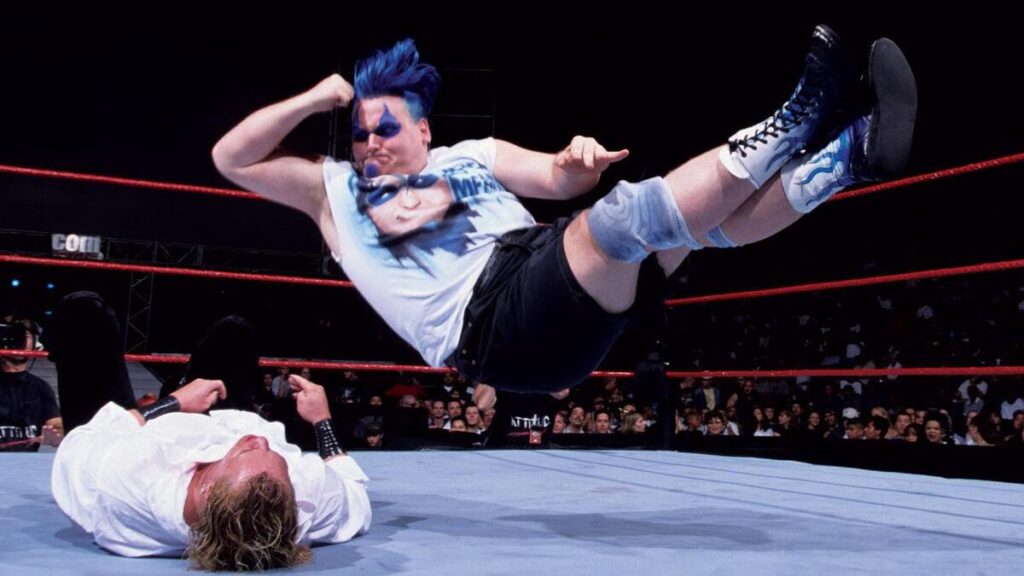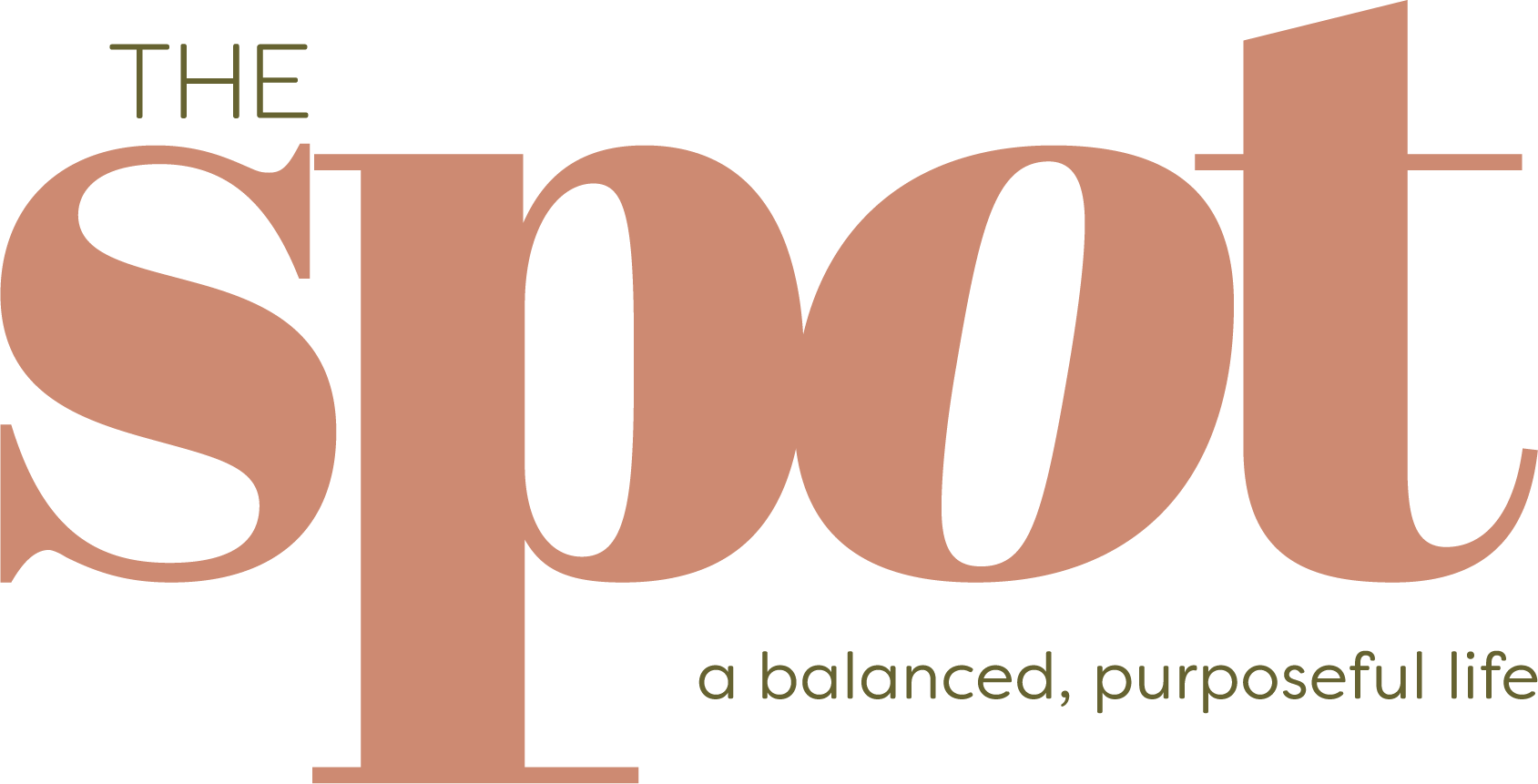You just may see Brian Heffron, a.k.a The Blue Meanie, at his local favorite bar McCusker’s Tavern. Brian and his girlfriend Tracy are often together either taking in a game or chatting with other patrons. Unimposing, Brian is soft spoken and pleasant. McCusker’s, located in the St. Monica Parish section of South Philly, has been a long time favorite spot in the neighborhood. It is the type of place that exudes comfort and home. It’s only natural that Brian does not veer from his favorite place. In many ways, his rise all started in St. Monica Parish and South Philly, where he was born.
Although he was born in Philly, at the age of two, Heffron’s family wound up moving to New Jersey. Brian spent his childhood primarily in Gloucester City and Atlantic City. He states today that even at a young age he felt a connection to South Philly knowing that’s where he was born.
Most artists that have a love of music, team, or movie and can name the exact moment of their calling. That moment came in the form of Brian’s eight year old self when his friend next door wanted to watch wrestling instead of the Phillies. Brian tells us he was enthralled especially by the larger than life aspect. However, there was one match that Heffron attributes to getting “bitten by the bug.” That match was between Rick Martel and Tony Garea against Mr. Fuji and Mr. Saito. He credits that match as the one that really stayed with him.
If Brian was entertaining any thoughts of one day becoming a wrestler himself, he had some serious health challenges to overcome. Heffron had severe asthma growing up and often was in the hospital during spring and fall seasons. Brian recounts that he was hooked up to breathing machines for a couple of weeks at a time therefore consigned his love of wrestling as a spectator. In hindsight, it is easy to see now how his journey led to wrestling. As he explained, he often felt he didn’t quite fit in. He was not able to participate in everyday outside activities therefore spent a large amount of time in his room.
During the early 1980s, his grandfather took him to wrestling matches at the Boardwalk Hall in Atlantic City. The Boardwalk Hall was a popular venue for wrestling and especially the main events. Brian vividly recalls the first match he attended. The match consisted of Mr. Fuji and Mr. Saito, Black Jack Mulligan against the Strongbow brothers and Andre the Giant. Brian brings up the memory with a smile on his face but on a more personal note, the main event holds a special place in his heart as he notes it was a pivotal moment in his life. Andre the Giant came to be his all time favorite wrestler. Brian acknowledges that he really identified with Andre the Giant in terms of feeling different from the other kids. Also, Heffron was often picked on for being asthmatic, living in a single parent household, and gaining weight as a child.
Depression also played a role due to his ongoing health issues. Eventually Heffron was fortunate that his parents found a specialist who was able to properly diagnose Brian’s asthma. Finding his asthma was triggered due to multiple allergies, they were able to find a treatment that has helped Heffron tremendously. Eventually, Brian’s lungs became stronger and was able to participate in activities that he wasn’t able to in his high school years. As a result, Brian tells us he was able to experience a new lease on life.
Heffron’s pro wrestling career began in Lima, Ohio shortly after high school. About a year or so on the circuit, Stevie Richards and Raven of ECW (Extreme Championship Wrestling) began to take note of the young Heffron. As he recalls the story, Raven took Brian to his house in Cherry Hill, NJ and presented the idea of taking on the character The Blue Meanie based on the Blue Meanies in the movie Yellow Submarine. At that point in time, Brian was only concerned with joining the ECW. Raven convinced Brian to dye his hair blue and his alter ego was born. It was a full circle moment, as Brian tells us he often attended ECW shows as a fan. Brian credits the ECW on what he describes as the Haley’s Comet of wrestling. The ECW brought a toughness to the sport which he describes as wrestling’s “Broad Street Bullies.” His outlook is that the ECW changed professional wrestling forever. Brian names Todd Gordon as being the one responsible for many careers of pro wrestlers we are familiar with today.
After three years with ECW, it was a phone call in 1998 that would really change Brian’s career and the trajectory of his life. Brian recalled that had worked with Norm Connors in Pittsburgh. After that show, Brian returned to Philly and was told to expect a call from Bruce Prichard, Executive Director of WWE. After speaking to Prichard, Brian who was then living with his grandmother and mother on 13th and Shunk Streets, advised his family to put all the bills under Brian’s name. Needless to say, that was the moment he knew he had hit it big. With a touch of emotion, Brian recalls that he was able to provide a comfortable life for his grandmother for the next couple of years of her life. He expressed gratitude that he was able to give back to his family for all of the sacrifices they had made for him. The feeling was a huge moment for himself, his family, and his hometown.

We wanted to know directly from The Blue Meanie, what is the significance of Wrestlemania 40 in Philadelphia? What is the enormity of this event? Brian does not give a watered down explanation. He simply states that it’s long overdue. Brian cites the early days of how Philadelphia was a huge market for wrestling and that matches were televised in the city. He emphasizes that Philly was always a pro wrestling town. As a matter of fact, Vince McMahon would come to the Spectrum to get a first hand look of the product. To paint a picture, Brian describes Wrestlemania as the Super Bowl of wrestling. After all, this is the ultimate goal of any professional wrestler . Any city that hosts Wrestlemania benefits economically as well as other promotions and companies. The Hall of Fame, Friday Night Smackdown, and Monday Night Raw will be huge draws. People are hailing from all over the world to attend all of these events. In addition, Wrestlemania is huge culturally for the city so it only makes sense that Wrestlemania returns “home.” Heffron himself will be hosting his own Wrestlemania event, Meanie Mania. If you’re expecting some large venue in downtown Philly, think again. Heffron will be in his favorite place, McCusker’s Tavern.
Naturally we wanted to know the importance of female wrestlers and interest in the sport overall. Brian affirms that this is the best time for women in wrestling. His take is that it was always perceived to be a male dominated profession however the last decade is changing that perception. All female events, pay per views, and big names are drawing in big numbers . Brian recognizes that female wrestlers have always been great for the sport and entertaining. He goes as far as saying, the growth of females in the WWE is nothing less than a revolution. Heffron names women like Becky Lynch and Charlotte Flair as big time draws and Rhea Ripley is one of the biggest names regardless of gender.
With Meanie’s rise from humble beginnings to the WWE, how does the future look for The Blue Meanie? He continues to give back and wishes to entertain further with his podcast Mind of the Meanie and lately appearing in various documentaries. His goal is to bring smiles and laughter to his audience and fans of the sport. According to The Blue Meanie, as long as that’s the case, he’s done his job. You can find the Mind of the Meanie podcast where ever you get your podcasts.

